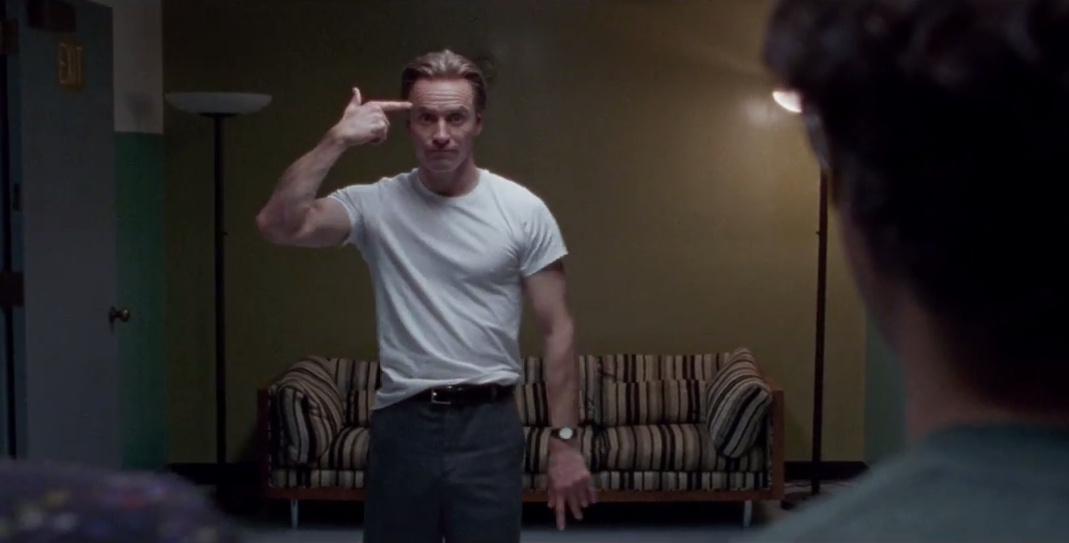Steve Jobs (2015) Review
★★★½

Danny Boyle's Steve Jobs is more of a cinematic experiment a "traditional film". True, it has a beginning, middle and end - a classic three-act structure, but the difference is that each act is thematically related, rather than plot related. Written by Aaron Sorkin, the dialogue and therefore character takes the forefront, and that's no bad thing.
One of the largest controversies about the film was the casting of the brilliant Michael Fassbender who, despite being brilliant, looks nothing like Steve Jobs did. Rest assured, Fassbender pulls through and silences those naysayers. Fassbender's performance as Steve Jobs is a masterclass in how an actor embodies as well as creates a character, even if they are based on an already existing person. By the end of the film, Fassbender is Steve Jobs, and still looks nothing like him. With the performances in Macbeth and Steve Jobs, Fassbender has reinforced the fact that he is one of the greatest English-speaking actors currently on the scene.

A small if not solid supporting cast surrounds, namely Kate Winslet, Jeff Daniels, Katherine Waterstone and Seth Rogen. Kate Winslet plays Joanna Hoffman earnestly, as well as a remarkably subtle Eastern European accent, lending to the realism of her portrayal of the character. The casting of Seth Rogen as Steve Wozniak was particularly inspired, as the physical similarities made it a believable fit, as well as Rogen's natural awkwardness lending to the awkwardness of an engineer.
Steve Jobs is designed as an inner portrait for the visionary, rather than a tired out and glossy linear biopic à la The Theory Of Everything, The Imitation Game, American Sniper - to name a few modern ones. Rather than attempting to capture the entire personal and public life of a single great individual, Sorkin and Boyle chose to combine those in the backstages of three main public events in Jobs' life. Audiences go to see biopics like Straight Outta Compton for the catharsis of the rags to riches story, the underdog story, the story of believing in oneself. This inevitably leads to waiting with glee for the moment when those who didn't believe get their comeuppance, or when the hero proves the world wrong.
With a stylistic touch that adds to the heightened tensions between characters, Sorkin ends each act before Jobs' lives out these moments, forgoing the catharsis to release pent-up tension. This is a simple yet effective technique that creates a tense film. The most part of the tension in the film centres around the main subject of the film, Steve Jobs. Boyle and Sorkin do not look past Jobs' clear and public flaws, and create an honest portrayal of the sort of person he was: a visionary who was close to tipping over into psychopathy. His rejections of his former partner and young daughter, as well as his mentor and closest friend seem entirely irrational, yet also follow a perverted inner logic. His refusal to acknowledge the Apple II team seemed petty, and yet he stood by it as a matter of principle, creating difficult situations that could have been easily avoided. Jobs and his estranged daughter take the forefront of the drama by the end, and it's suitably touching as well as infuriating as emotions boil to the surface.

This is by no means a biopic that casts the subject in gold - instead attempting to recreate the very flesh and blood human that caused chaos amongst those closest to him, whilst advancing consumer technology for the masses. The film does unfortunately fall just short of greatness - all of it's strengths are also it's weaknesses. Sorkin's writing is engaging and creates a natural tension, but the dialogue inevitably has a clinical clip to it. The smooth and occasionally creative cinematography creates a solid and consistent tone, yet sanitises the messy emotions within the frame. Despite the few downsides, Steve Jobs is a solid biopic, coming close to competing with Love & Mercy for best biopic of 2015.
A perspective on the news, art and business of cinema to discuss
_large.jpg)